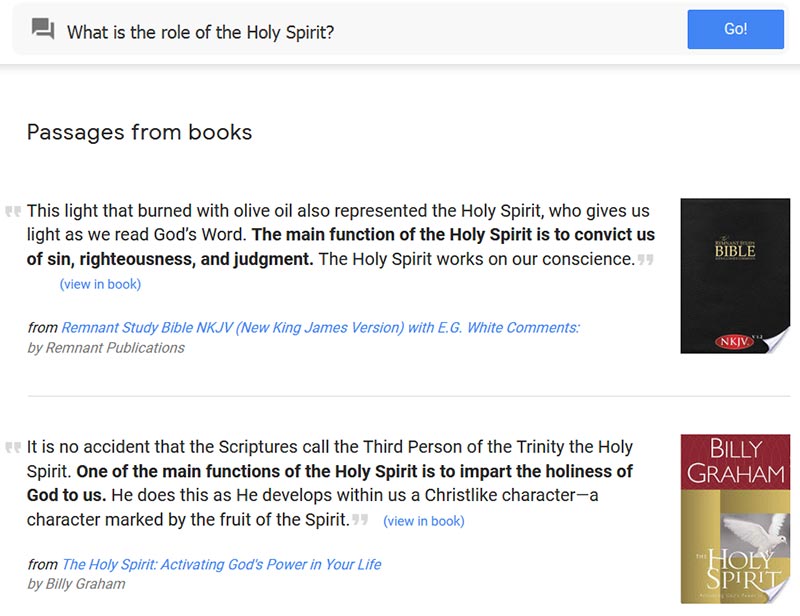Google just announced an AI-powered experiment called Talk to Books, which lets you enter a query and find passages in books that are semantically similar to your query, not merely passages that happen to match the keywords you chose. For theology- and Bible-related questions, it often presents an evangelical perspective, perhaps because U.S. evangelical publishers have been eager for Google to index their books.
Here are some questions I asked it, with a sample response (not always the first):
Does God exist? “Creatures may or may not exist; God must exist; He cannot not exist.” — The Catholic Collection.
Why does a good God allow suffering? “Either you somehow deny the world’s suffering (that is, suffering is eventually shown to belong to a higher order of goodness) or else one or more of God’s characteristics (existence, benevolence, omnipotence) are denied.” — A Philosophy of Evil.
When does the rapture happen? “Depending upon one’s view, the rapture occurs either before, during, or after a seven-year period of intense trial and trauma on earth known as the tribulation, as recorded in Revelation 6-19.” — Armed Groups: Studies in National Security, Counterterrorism, and Counterinsurgency.
Where is Jesus now? “Wherever you are as you read these words, he is present.” — And the Angels Were Silent. Some of the other answers, like “He is on the shore of the Sea of Galilee with Andrew and other apostles,” are on the strange side–even in context, the answer is wrong, as this sentence is talking about Peter, not Jesus.
It totally whiffs on Who is Abraham’s father? Rather than interpreting the question and providing a factual answer, it presents a number of passages describing how Abraham is the father of Isaac or of Isaac’s descendants. These passages relate semantically but don’t answer the question.
